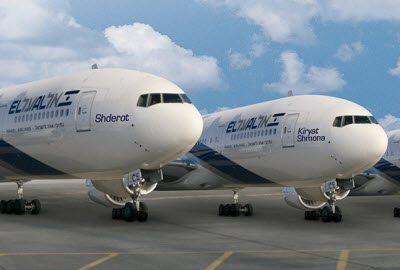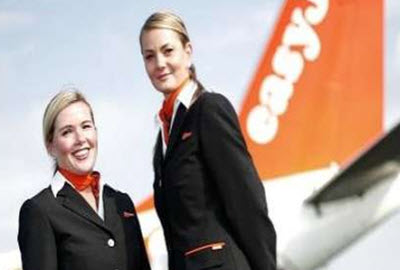EL AL cabin crew flies deaf people out of isolation
- Written by Roberto Castiglioni
 EL AL cabin crew Larisa Speyer gained sudden notoriety after showing the ease of bridging the gap that usually thrusts deaf people into isolation.
EL AL cabin crew Larisa Speyer gained sudden notoriety after showing the ease of bridging the gap that usually thrusts deaf people into isolation.
A visit to the Nalagaat Center in Jaffa, Israel, inspired Larisa to learn sign language. "What I saw that day was the difficult circumstances of being deaf at a café and blind at a restaurant, and since then I have decided to learn sign language," she said. "I decided to learn sign language because we occasionally have deaf people onboard our flights and I need to be able to serve them."
The center offers an array of sensory experiences like the "Kapish" coffee shop where deaf waiters invite guests to communicate beyond the spoken word, and the "Blackout" restaurant where blind waiters escort the diners into a special experience in complete darkness.
Few months into her sign language course Larisa learned a deaf basketball team was set to fly to a sports competition in Taiwan in July.
"When I heard that I immediately called my manager at El Al, and asked to be placed on that flight, and he gave it to me. For me,  it’s the first time I can put to use what I learned."
it’s the first time I can put to use what I learned."
Larisa, who describes the flight as an amazing experience, received a touching thank you letter from the team. "For the first time ever, we felt like equals, and received equal and accessible service in sign language, which is the official language of the deaf community," the deaf athletes wrote.
Despite affecting more than five per cent of the world's population, assistive technology for the deaf is widely unavailable at airports across the world. A vast number of assistive technology solutions that can greatly improve the airport experience for deaf people as well as those with mild visual impairments as well as those with learning and cognitive difficulties.
 The US government is strongly supporting change in the airline industry to ensure inclusive travel for deaf people. In September 2013, the U.S. Department of Transportation fined Virgin America $150,000 for failing to make its in-flight safety video accessible to passengers with hearing loss. The airline also was ordered to cease and desist from further violations.
The US government is strongly supporting change in the airline industry to ensure inclusive travel for deaf people. In September 2013, the U.S. Department of Transportation fined Virgin America $150,000 for failing to make its in-flight safety video accessible to passengers with hearing loss. The airline also was ordered to cease and desist from further violations.
In Europe, easyjet set a new accessibility benchmark by addressing the importance of lip reading for people who are deaf or hard of hearing.
"Following feedback from the easyjet special assistance advisory group, the easyJet's crew training department will now incorporate information on how important it is for passengers to be able to lip read crew into our disability awareness training,” the spokesperson said. “The training team will emphasise the importance of facing the passengers when making announcements from the front of the cabin."










